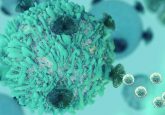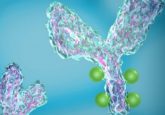Single nucleotide polymorphism on the KLK3 gene may be linked to an aggressive form of prostate cancer

A study carried out at the University of Texas MD Anderson Cancer Center (TX, USA) has identified a biomarker positioned downstream of the KLK3 gene that can predict which Gleason score (GS) 7 prostate cancer patients will have a more aggressive form of the disease.
The findings, published in Clinical Cancer Research, indicated that the KLK3 gene, which is associated with prostate cancer aggression, has a single nucleotide polymorphism (SNP) which is more apparent in GS7 cancer patients.
A lot of research has been dedicated to the different clinical behaviours in prostate cancer, including GS7 prostate cancer, which is an intermediate-grade cancer accounting for 30–40% of all prostate cancers. In this study, researchers examined inherited genetic variants to identify promising biomarkers that may predict the aggressiveness of GS7 disease.
The research involved genotyping 72 prostate cancer susceptibility SNPs identified in genome-wide association studies in 1827 prostate cancer patients. The association of the SNPs with the aggression of the disease was identified by comparing them with clinically defined high-aggressive and low-aggressive cases. The outcome of the study resulted in finding a SNP on the KLK3 gene that is associated with an aggressive form of the GS7 disease.
“Treatment options for the GS7 disease are controversial because the burden of combined treatment modalities may outweigh the potential benefit in some patients,” stated lead investigator Xifeng Wu (MD Anderson Cancer Center). “It is critical that we develop personalized treatments based on additional biomarkers to stratify GS7 prostate cancers. Additional biomarkers may help us achieve personalized clinical management of low and intermediate risk prostate cancer patients.”
Wu’s group will continue the study by taking a pathway-based approach to systemically investigate genetic variants in microRNA regulatory pathways as biomarkers for the prognosis of prostate cancer patients. “We are also working on circulating biomarkers. Eventually, we will incorporate all biomarkers, epidemiological and clinical variants into nomograms to best predict the prognosis of prostate cancer patients at diagnosis.”
Sources:
He Y, Gu J, Strom S., Logothetis C J, Kim J, Wu X. The Prostate Cancer Susceptibility Variant rs2735839 Near KLK3 Gene Is Associated with Aggressive Prostate Cancer and Can Stratify Gleason Score 7 Patients. Clinical Cancer Research, 20(19), 5133 doi: 10.1158/1078-0432.CCR-14-0661 (2014); University of Texas MD Anderson Cancer Center press release





